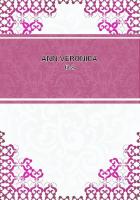If magic is thus next of kin to science, we have still to enquire how it stands related to religion. But the view we take of that relation will necessarily be coloured by the idea which we have formed of the nature of religion itself; hence a writer may reasonably be expected to define his conception of religion before he proceeds to investigate its relation to magic. There is probably no subject in the world about which opinions differ so much as the nature of religion, and to frame a definition of it which would satisfy every one must obviously be impossible. All that a writer can do is, first, to say clearly what he means by religion, and afterwards to employ the word consistently in that sense throughout his work. By religion, then, I understand a propitiation or conciliation of powers superior to man which are believed to direct and control the course of nature and of human life. Thus defined, religion consists of two elements, a theoretical and a practical, namely, a belief in powers higher than man and an attempt to propitiate or please them. Of the two, belief clearly comes first, since we must believe in the existence of a divine being before we can attempt to please him. But unless the belief leads to a corresponding practice, it is not a religion but merely a theology; in the language of St. James, faith, if it hath not works, is dead, being alone. In other words, no man is religious who does not govern his conduct in some measure by the fear or love of God. On the other hand, mere practice, divested of all religious belief, is also not religion. Two men may behave in exactly the same way, and yet one of them may be religious and the other not. If the one acts from the love or fear of God, he is religious; if the other acts from the love or fear of man, he is moral or immoral according as his behaviour comports or conflicts with the general good. Hence belief and practice or, in theological language, faith and works are equally essential to religion, which cannot exist without both of them. But it is not necessary that religious practice should always take the form of a ritual; that is, it need not consist in the offering of sacrifice, the recitation of prayers, and other outward ceremonies. Its aim is to please the deity, and if the deity is one who delights in charity and mercy and purity more than in oblations of blood, the chanting of hymns, and the fumes of incense, his worshippers will best please him, not by prostrating themselves before him, by intoning his praises, and by filling his temples with costly gifts, but by being pure and merciful and charitable towards men, for in so doing they will imitate, so far as human infirmity allows, the perfections of the divine nature. It was this ethical side of religion which the Hebrew prophets, inspired with a noble ideal of God's goodness and holiness, were never weary of inculcating. Thus Micah says: He hath shewed thee, O man, what is good; and what doth the Lord require of thee, but to do justly, and to love mercy, and to walk humbly with thy God? And at a later time much of the force by which Christianity conquered the world was drawn from the same high conception of God's moral nature and the duty laid on men of conforming themselves to it.
Pure religion and undefiled, says St. James, before God and the Father is this, To visit the fatherless and widows in their affliction, and to keep himself unspotted from the world.
But if religion involves, first, a belief in superhuman beings who rule the world, and, second, an attempt to win their favour, it clearly assumes that the course of nature is to some extent elastic or variable, and that we can persuade or induce the mighty beings who control it to deflect, for our benefit, the current of events from the channel in which they would otherwise flow. Now this implied elasticity or variability of nature is directly opposed to the principles of magic as well as of science, both of which assume that the processes of nature are rigid and invariable in their operation, and that they can as little be turned from their course by persuasion and entreaty as by threats and intimidation. The distinction between the two conflicting views of the universe turns on their answer to the crucial question, Are the forces which govern the world conscious and personal, or unconscious and impersonal?













